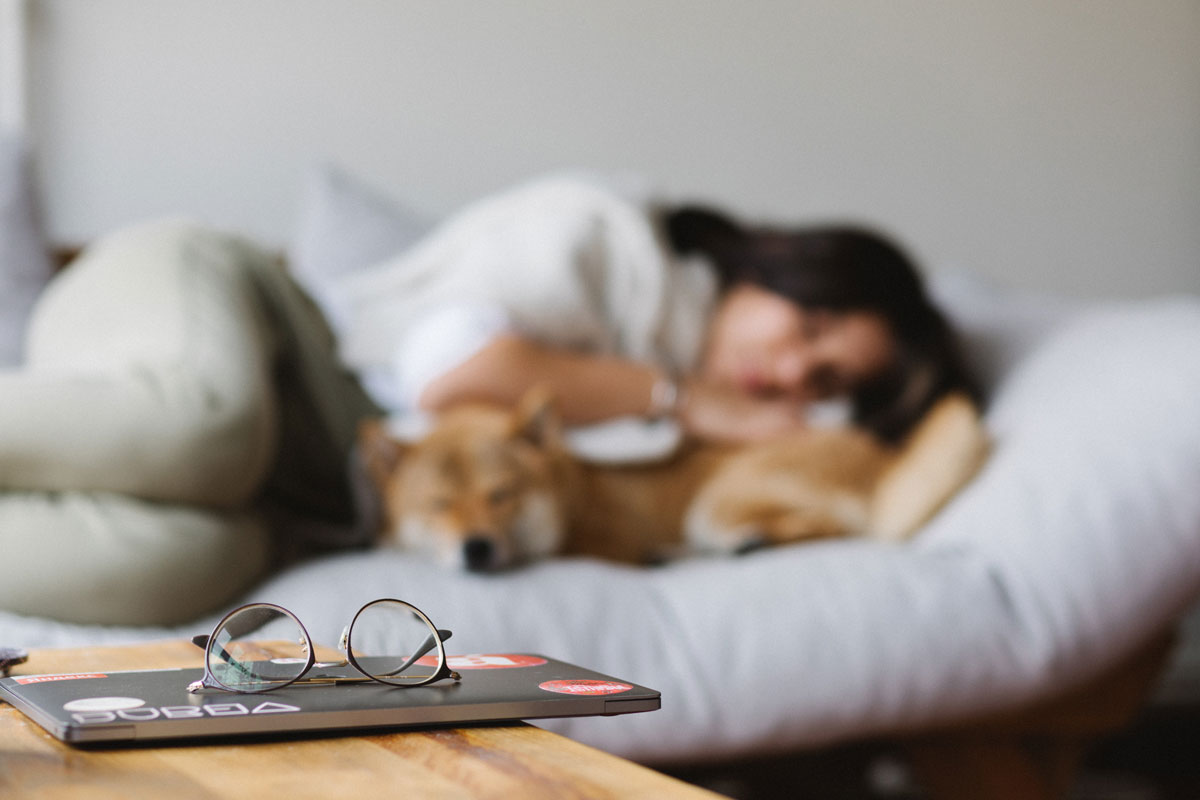Sleep Science and Tips for Tired Students
By Allison Funk, Ph.D.
Sleep deprivation and tiredness are common problems among high school and college students. In fact, research shows that approximately 70% of both high school students and college students average less than 8 hours of sleep per night, which is the minimum number of nightly hours for this age group. The pattern of sleeping less than needed leads to mounting sleep debt, meaning that students’ bodies keep track of the cumulative hours of missed sleep and their physical, mental, and emotional processes are negatively affected by the deficit.
The consequences of sleep deprivation for students can be chronic and pronounced: poor mood, daytime fatigue, difficulty concentrating, and even significant declines in grades. If you’re a student struggling with sleep-related issues, here’s a quick science lesson to help you understand what might be going on— and how you can fix it.
- Know It’s Not Your Fault: Adolescents and young adults have different circadian rhythms than adults, meaning that their bodies’ sleep/wake cycles function differently: they naturally need more sleep and are biologically programmed to go to sleep later and wake later. Therefore, if you’re getting seven hours of sleep a night and struggling to stay awake during your 8 am class, it’s not your fault— this isn’t the ideal routine for your body’s internal clock. Knowing this, you can cultivate more compassion for yourself and any symptoms you may be experiencing.
- Do the Math to Plan Ahead: As mentioned above, the minimum nightly hours of sleep for high school and college-aged students is 8— and that doesn’t include the time it takes to fall asleep. But this number can also be higher depending on the individual, with some teens needing a full 10 hours of sleep to function optimally. Therefore, to give yourself the best chance of getting enough sleep, plan ahead by working backwards from your morning obligations. For example, if I need to be sitting in lecture by 9 am, and it takes me an hour and a half to get ready and commute, and I need nine hours of sleep, then I need to be asleep by 10:30 pm. Therefore, in order to account for time to get ready for bed and fall asleep, I likely need to start winding down at 9:30 or 10 pm. This means it probably isn’t a good idea for me to join my friends for a 9 pm movie, even though in theory I might think I’d have enough time. Plan ahead to have a realistic view of what you can commit to and when.
- Stay Consistent: Knowing about the concept of sleep debt, it might be tempting to think that you can get six hours of sleep a few nights a week as long as you make up for it on the other nights. Or maybe since you know that the number of nightly hours of sleep matters, it seems it should add up the same to go to bed at 3 am and wake up at 11 am when you normally go to bed at 10 pm and wake up at 6 am. Unfortunately, evidence suggests that quality of sleep is as important as quantity. Our bodies function best when we get a consistent number of hours of sleep each night, and when our bedtime and wake-up time is fairly consistent across days. Do your best to go to bed and get up at approximately the same time every day, including on weekends. You may not be able to do this perfectly, but try to set some time boundaries for yourself (e.g., always being in bed before midnight and awake by 10 am) so you have guidelines to follow. You can also ask a family member or roommate to help hold you accountable.
- Minimize Electronic Use Before Bed: You may think that the “no phones in bed” advice you’ve been told is just because people stay up too late when they’re scrolling, but it’s actually deeper than that. Screens, such as the ones on our phones, computers, and TVs, emit a kind of light called blue wave (also known as short wave) light. When your eyes are exposed to this light, your brain makes less melatonin, which is the hormone that is needed to prompt your body to go to sleep. Essentially, your brain interprets the light from screens the same way that it would interpret daylight, so it puts a pause on producing melatonin because melatonin is meant to be released at nighttime. So when you stay up late playing video games with friends, looking at Tik Tok in bed, or studying on your laptop, you’re unintentionally disturbing your body’s sleep chemistry by sending your brain signals that it is daytime. This can lead to difficulties falling asleep, poorer sleep quality, daytime sleepiness, and other undesirable effects. A good strategy, therefore, is to stop using any devices that emit blue wave light an hour before bed. However, this may not feel doable if you’re in the habit of always using electronics before bed or in the bedroom. If that’s the case, aim to scale back your use in a way that is realistic for you. For example, maybe you let yourself watch TV in the evening, but once the clock strikes 10 you have to switch to an activity that doesn’t involve screens. Or maybe you let yourself scroll on your phone for a while before bedtime, but never in your bed. If you don’t have your own bedroom, you may not have full control over what screens are on in the environment, but you do have control over how you engage with them.
By understanding the science behind sleep, it’s easier to understand why sleep problems are so common for students. But this knowledge is power, and once you learn how to work with your body’s chemistry, it becomes easier to meet your sleep needs and feel better.
At AICT, we provide CBT for insomnia and other sleep problems. Cognitive, behavioral, and psychoeducational interventions are used to manage symptoms and support a healthy sleep cycle. Sleep well!

